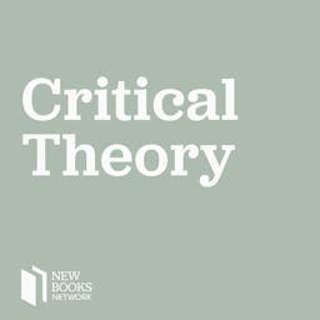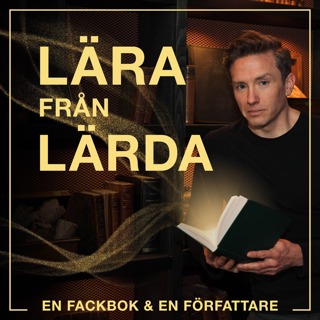
Hans Kundnani, "Eurowhiteness: Culture, Empire and Race in the European Project" (Oxford UP, 2023)
"Today’s 'pro-Europeans' would be horrified at the suggestion that their idea of Europe had anything to do with whiteness. In fact, many would find the attempt to link the two baffling and outrageous," writes Hans Kundnani in Eurowhiteness: Culture, Empire and Race in the European Project (Oxford UP, 2023). Yet, he does so - taking the reader on a historical journey through the development of European identity from Christendom to the coincidence of the Enlightenment and the development of colonialism to the pan-European movement that grew out of the first world war and peace project (or was it?) that emerged from the second. Not only is pro-Europeanism “analogous to nationalism - something like nationalism but on a larger, continental scale," Kundani argues, but the EU itself has “become a vehicle for imperial amnesia" thereby promoting and privileging “whiteness”. Hans Kundnani is a fellow at the Open Society Foundations Workshop, an associate scholar at the Royal Institute of International Affairs (Chatham House), and a visiting scholar at the Robert L. Heilbroner Center for Capitalism Studies at The New School for Social Research. From 2018-22, he was a full-time researcher at Chatham House, including as director of the Europe Programme. Before that, he was a researcher at the German Marshall Fund, the Transatlantic Academy, and the European Council on Foreign Relations. In 2014, he published The Paradox of German Power. *The author's own book recommendations are Eurafrica: The Untold History of European Integration and Colonialism by Peo Hansen and Stefan Jonsson (Bloomsbury Academic, 2015) and The Lonely Londoners by Sam Selvon (Penguin Modern Classics, 2006 - first published in 1956) Tim Gwynn Jones is an economic and political-risk analyst at Medley Advisors, who also writes the twenty4two newsletter on Substack and hosts the In The Room podcast series. Learn more about your ad choices. Visit megaphone.fm/adchoices Support our show by becoming a premium member! https://newbooksnetwork.supportingcast.fm/critical-theory
1 Jan 48min

Bernard Forjwuor, "Critique of Political Decolonization" (Oxford UP, 2023)
What is political independence? As a political act, what was it sanctioned to accomplish? Is formal colonialism over, or a condition in the present, albeit mutated and evolved? In Critique of Political Decolonization (Oxford UP, 2023), Bernard Forjwuor challenges what, in normative scholarship, has become a persistent conflation of two different concepts: political decolonization and political independence. This scholarly volume is an antinormative and critical refutation of the decolonial accomplishment of political independence or self-determination in Ghana. He argues that political independence is insufficiently a decolonial claim because it is framed within the context of a country, where a permanent colonial settlement was never deemed necessary for the consolidation of future colonial political obligations. So, while territorial dissolution was politically engineered by Ghanaians, the colonial merely reconstitutes itself in different legal and ideological forms. Forjwuor offers new methodological, theoretical, and conceptual approaches to engaging the questions of colonialism, political independence, political decolonization, justice, and freedom, and constructs multiple conceptual bridges between traditional disciplinary fields of inquiry including politics, history, law, African studies, economic history, critical theory, and philosophy and political theory. Using the Ghanaian experience as a rich case study, Forjwuor rethinks what colonialism and decolonization mean, and asserts that decolonization is primarily a question of justice. Bernard Forjwuor is an Assistant Professor of Africana Studies at the University of Notre Dame. He is a scholar of black political thought, and his research focuses on the philosophical, critical, and theoretical claims advanced by global black political thinkers. His recent work challenges the ways the colonial and the racial are routinely affirmed as extinguished in the liberal democratic affirmation of sovereignty. Learn more about your ad choices. Visit megaphone.fm/adchoices Support our show by becoming a premium member! https://newbooksnetwork.supportingcast.fm/critical-theory
31 Dec 202553min

Gillian Adler and Paul Strohm, "Alle Thyng Hath Tyme: Time and Medieval Life" (Reaktion, 2023)
Alle Thyng Hath Tyme: Time and Medieval Life (Reaktion, 2023) recreates medieval people’s experience of time: as continuous and discontinuous, linear and cyclical, embracing Creation and Judgement, shrinking to ‘atoms’ or ‘droplets’ and extending to the silent spaces of eternity. They might measure time by natural phenomena such as sunrise and sunset, the motion of the stars or the progress of the seasons, even as the late medieval invention of the mechanical clock was making time-reckoning more precise. Negotiating these mixed and competing systems, medieval people gained a nuanced and expansive sense of time that rewards attention today. Gillian Adler is Associate Professor of Literature and Esther Raushenbush Chair in Humanities at Sarah Lawrence College in New York. She is the author of Chaucer and the Ethics of Time (2022) Morteza Hajizadeh is a Ph.D. graduate in English from the University of Auckland in New Zealand. His research interests are Cultural Studies; Critical Theory; Environmental History; Medieval (Intellectual) History; Gothic Studies; 18th and 19th Century British Literature. YouTube Channel: here Learn more about your ad choices. Visit megaphone.fm/adchoices Support our show by becoming a premium member! https://newbooksnetwork.supportingcast.fm/critical-theory
30 Dec 202536min

Martin Jay, "Immanent Critiques: The Frankfurt School under Pressure" (Verso, 2023)
The Frankfurt School’s own legacy is best preserved by exercising an immanent critique of its premises and the conclusions to which they often led. By distinguishing between what is still and what is no longer alive in Critical Theory, Immanent Critiques: The Frankfurt School Under Pressure (Verso, 2023) seeks to demonstrate its continuing relevance in the 21st century. Fifty years after the appearance of The Dialectical Imagination, his pioneering history of the Frankfurt School, Martin Jay reflects on what may be living and dead in its legacy. Rather than treating it with filial piety as a fortress to be defended, he takes seriously its anti-systematic impulse and sensitivity to changing historical circumstances. Honoring the Frankfurt School's practice of immanent critique, he puts critical pressure on a number of its own ideas by probing their contradictory impulses. Among them are the pathologization of political deviance through stigmatizing "authoritarian personalities," the undefended theological premises of Walter Benjamin's work, and the ambivalence of its members' analyses of anti-Semitism and Zionism. Additional questions are asked about other time-honored Marxist themes: the meaning of alienation, the alleged damages of abstraction, and the advocacy of a politics based on a singular notion of the truth. Rather, however, than allowing these questions to snowball into an unwarranted repudiation of the Frankfurt School legacy as a whole, the essay collection also acknowledges a number of its still potent arguments. They explore its neglected, but now timely analysis of "racket society," Adorno's dialectical reading of aesthetic sublimation, and the unexpected implications of Benjamin's focus on the corpse for political theory. Jay shows that it is a still evolving theoretical tradition which offers resources for the understanding of–and perhaps even practical betterment–of our increasingly troubled world. Learn more about your ad choices. Visit megaphone.fm/adchoices Support our show by becoming a premium member! https://newbooksnetwork.supportingcast.fm/critical-theory
30 Dec 20251h 22min

Russell T. McCutcheon, "Critics Not Caretakers: Redescribing the Public Study of Religion" (Routledge, 2023)
Russell T. McCutcheon's essay collection Critics Not Caretakers: Redescribing the Public Study of Religion (Routledge, 2023) argues that the study of religion must be rethought as an ordinary aspect of social, historical existence, a stance that makes the scholar of religion a critic of cultural and historical practices rather than a caretaker of religious tradition or a font of timeless wisdom and deep meaning. Raj Balkaran is a scholar of Sanskrit narrative texts. He teaches at the Oxford Centre for Hindu Studies and at his own virtual School of Indian Wisdom. For information see rajbalkaran.com. Learn more about your ad choices. Visit megaphone.fm/adchoices Support our show by becoming a premium member! https://newbooksnetwork.supportingcast.fm/critical-theory
29 Dec 202548min

Philippe Huneman, "Why?: The Philosophy Behind the Question" (Stanford UP, 2023)
Why did triceratops have horns? Why did World War I occur? Why does Romeo love Juliet? And, most importantly, why ask why? In Why?: The Philosophy Behind the Question (Stanford UP, 2023), philosopher Philippe Huneman describes the different meanings of "why," and how those meanings can, and should (or should not), be conflated. As Huneman outlines, there are three basic meanings of why: the cause of an event, the reason of a belief, and the reason why I do what I do (the purpose). Each of these meanings, in turn, impacts how we approach knowledge in a wide array of disciplines: science, history, psychology, and metaphysics. Exhibiting a rare combination of conversational ease and intellectual rigor, Huneman teases out the hidden dimensions of questions as seemingly simple as "Why did Mickey Mouse open the refrigerator?" or as seemingly unanswerable as "Why am I me?" In doing so, he provides an extraordinary tour of canonical and contemporary philosophical thought, from Plato and Aristotle, through Descartes and Spinoza, to Elizabeth Anscombe and Ruth Millikan, and beyond. Of course, no proper reckoning with the question "why?" can afford not to acknowledge its limits, which are the limits, and the ends, of reason itself. Huneman thus concludes with a provocative elaboration of what Kant called the "natural need for metaphysics," the unallayed instinct we have to ask the question even when we know there can be no unequivocal answer. Philippe Huneman is Research Director at the Institut d'Histoire et de Philosophie des Sciences et des Techniques, CNRS/ Université Paris I Panthéon Sorbonne and the author of several books in French and English, including Philosophical Sketches of Death in Biology: An Historical and Analytic Investigation (2022). Morteza Hajizadeh is a Ph.D. graduate in English from the University of Auckland in New Zealand. His research interests are Cultural Studies; Critical Theory; Environmental History; Medieval (Intellectual) History; Gothic Studies; 18th and 19th Century British Literature. YouTube channel. Learn more about your ad choices. Visit megaphone.fm/adchoices Support our show by becoming a premium member! https://newbooksnetwork.supportingcast.fm/critical-theory
29 Dec 20251h 26min

Henrike Kohpeiß, "Bourgeois Coldness" (Divided Publishing, 2025)
Bourgeois Coldness (Divided Publishing, 2025) refers to an affective strategy that offers an explanation for how self-preservation works. Bourgeois coldness is one of the most advanced affective and aesthetic forms of preserving the structure of the colonial status quo. It creates an affective shelter in the world, unencroached upon by the immediate consequences of its many catastrophes. It functions like air conditioning – a complex technology which reliably stabilises the climate until those inside consider it natural. Bourgeois spaces – institutional and affective – stay cool and pleasant. But outside it’s burning. Canonical critical theory by Adorno and Horkheimer enters a dialogue with Black studies through Hartman and Moten. Host: Michael L. Rosino, Assistant Professor of Sociology, Molloy University Recent Books: Democracy is Awkward: Grappling with Racism inside Grassroots Political Organizing (UNC Press) 30% off with code: 01UNCP30 Debating the Drug War: Race, Politics, and the Media (Routledge) Learn more about your ad choices. Visit megaphone.fm/adchoices Support our show by becoming a premium member! https://newbooksnetwork.supportingcast.fm/critical-theory
27 Dec 202550min

Daniel M. Herskowitz, "The Judeo-Christian Thought of Franz Rosenzweig" (Liverpool UP, 2025)
The Judeo-Christian Thought of Franz Rosenzweig (Liverpool UP, 2025) offers a new interpretation of Franz Rosenzweig's magnum opus The Star of Redemption, commonly treated as one of the high points of modern Jewish thought, and demonstrates its profound immersion in the Protestant conceptuality of its time. It argues that appreciating the decisive mark of Protestant thought on The Star solves many of its puzzles, challenges some entrenched hagiographic orthodoxies about Rosenzweig, and provides a unique perspective onto one of the most influential cases of the 'Protestantisation of Judaism'. The book shows that Rosenzweig's inventiveness resides in his weaving of Jewish and Christian motifs that result in an original scheme that is remarkably inclusive toward Judaism from a Christian perspective and remarkably inclusive toward Christianity from a Jewish perspective. The Star thus emerges anew, not simply as a work of Jewish thought that is 'influenced' by Christian theology but as a work that is more accurately characterised as 'Judeo-Christian'." Learn more about your ad choices. Visit megaphone.fm/adchoices Support our show by becoming a premium member! https://newbooksnetwork.supportingcast.fm/critical-theory
27 Dec 20251h 10min





















